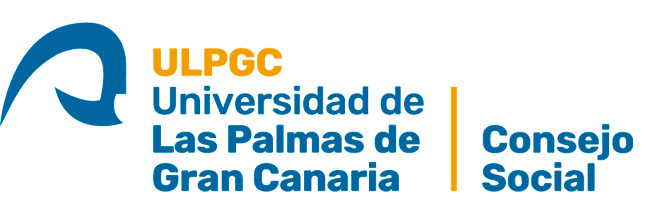The chairman of the ULPGC Social Council, Jesús León Lima, held a meeting in the Gran Canaria Chamber of Commerce in order to present the Canarias Importa [The Canary Islands are Important] initiative to members of the European Funds Working Group, which was advocated by the Chamber of Commerce for the coordination of projects which are likely to be undertaken with the support of European recovery funds. Francisco Rubio Royo, honorary rector of the ULPGC and the coordinator of the initiative, also spoke during this meeting focusing his remarks on the proposals pertaining to the tourism sector created by 10 experts and more than 60 contributors.
The following people were present on behalf of the working group: Santiago Armas, chairman of the Tourism Committee; Anabel Medina, head of the Gran Canaria Chamber of Commerce’s tourism department; Agustín Manrique Lara, chairman of the Confederación Canaria de Empresarios [Canary Island Confederation of Entrepreneurs]; Águeda Borges, representative of the RUI chain in the Canary Islands; Carlos Gimeno, director of The Hotels hotel chain (Federation of Hospitality and Tourism Entrepreneurs); and the tourism councillors for the Mogán and San Bartolomé de Tirajana councils, Alba Molina and Alejandro Marichal. In addition, other members of the working group were present, including the ULPGC Social Council and the Archipiélago Next and PwC businesses.
Jesús León Lima stated that Canarias Importa is a structurally transformative process for the future of the Canary Islands, an objective and independent document which vindicates the need for the university and society to work together.
For his part, Francisco Rubio Royo explained that Canarias Importa is a medium and long term proposal, but that it is also aligned with the short term. He referred to this short term aspect focusing on the Senior Resort School & Lab pilot project, a micro destination for seniors, based on a smart and updated tourism which will act as a driving force in other economic sectors and which is the only social factor capable of boosting the Canary Islands’ production system.
During his remarks he explained the importance of taking into account the 17 Sustainable Development Goals, which have very clear indicators that the European Commission will insist on when deciding the distribution of the Next Generation Funds. These indicators fall under five main groups: people, prosperity, planet, partnerships, and peace.
Rubio Royo highlighted that the group which has produced Canarias Importa took into account the high rate of youth unemployment in the Canary Islands and the subsequent need to launch education programmes associated with senior citizens. “It is important to take action concerning the transformation of vocational training, within the process of creating an updated form of tourism which serves as a driving force for all areas of vocational training and is in line with that which is to be undertaken by the Spanish government and which has been announced by the Canary Island government”.
In reference to the pilot project, he stated that it was based on the creation of a tourist micro destination for seniors which acts as a laboratory school and backs tourism as a driving force behind the structural transformation of the Canary Islands’ productive economy, with collaboration from both the public and private sectors. Rubio Royo stressed that this micro destination should be digitalized and automated “as we are very interested in taking this step in the transformation of the Canary Islands”. He added that the Canary Islands should become an international tourism data hub, “a global benchmark in the field of tourism, in order to export services to developing countries”.
The members of the working group highlighted that Canarias Importa has a broad outlook concerning the development of the Canary Islands’ economic activity as a whole and, in particular, the development of tourism. They also indicated that the Senior Resort School & Lab pilot project proposed by this initiative is a very advanced project “which we should compile, support and implement because we believe that it fits in with the projects to be submitted for Next Generation Funds”.


